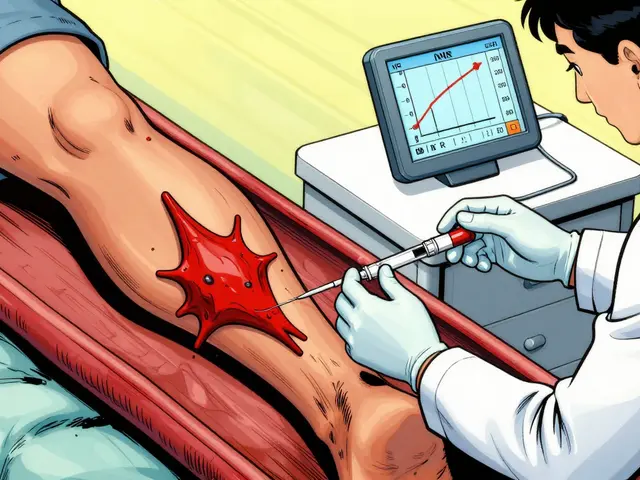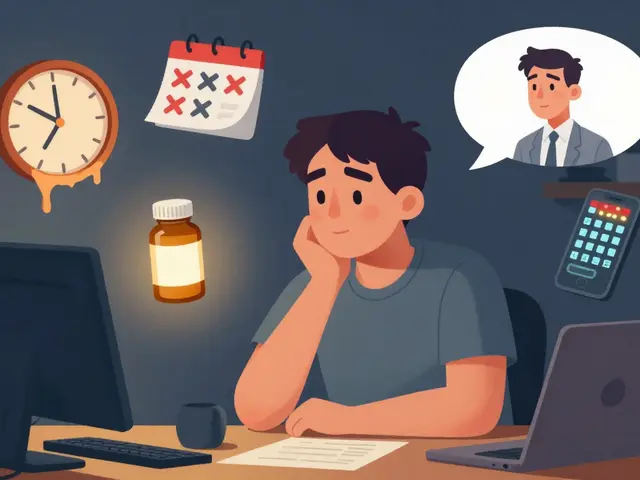Thyroid-Joint Connection: Why Thyroid Problems Cause Joint Pain
Waking up stiff or dealing with unexplained joint aches? Your thyroid might be a hidden cause. Both low and high thyroid function affect muscles, joints, and bones in different ways. Knowing what to look for helps you get the right tests and faster relief.
With hypothyroidism (low thyroid), people often report muscle soreness, joint stiffness, and slower recovery after activity. Low thyroid hormone slows down cell repair and can cause fluid retention around tissues, which adds pressure to joints. If your stiffness is worst in the morning or you feel unusually weak, mention it to your doctor along with fatigue and weight changes.
Hyperthyroidism (overactive thyroid) can cause problems too. It speeds up bone turnover, which raises the risk of early bone loss and fractures. That can show up as joint pain, especially in weight-bearing areas. People with overactive thyroids may also notice tremors, heat intolerance, and muscle weakness alongside joint discomfort.
Autoimmune overlap: when thyroid and joint disease show up together
Hashimoto’s and Graves’ disease are autoimmune, and autoimmune conditions often occur together. If you have autoimmune thyroid disease, your risk for other autoimmune joint conditions, like rheumatoid arthritis, goes up. Key red flags are swollen joints, long-lasting morning stiffness over an hour, or progressive loss of function. Those signs deserve a rheumatology check.
What tests and steps actually help
Start simple. Ask your doctor for TSH and free T4 tests plus thyroid antibodies (TPO and thyroglobulin). If thyroid tests are normal but pain persists, ask about ESR or CRP to check for inflammation. Bone density testing (DEXA) makes sense if you’ve had long-term hyperthyroidism or fractures.
Treating the thyroid often helps the joints. Levothyroxine for low thyroid typically reduces stiffness and muscle pain once levels are stable. Treating overactive thyroid slows bone loss and can ease joint symptoms. For ongoing joint pain, physical therapy, targeted strength work, and low-impact cardio (walking, cycling, swimming) reduce pain and protect joints.
Mind bone and muscle support: get a vitamin D test, aim for adequate calcium in your diet, and keep active to keep bones strong. Over-the-counter pain relievers and short NSAID courses can help, but always check with your doctor about interactions with thyroid meds. If autoimmune arthritis is suspected, disease-specific treatments will be needed.
If joint pain is new, severe, or limiting daily tasks, push for answers. Ask for the thyroid panel, mention autoimmune risk, request inflammation tests, and consider a rheumatology referral. Fixing the thyroid often clears up a lot, and a clear plan will help you protect joints and bones going forward.






